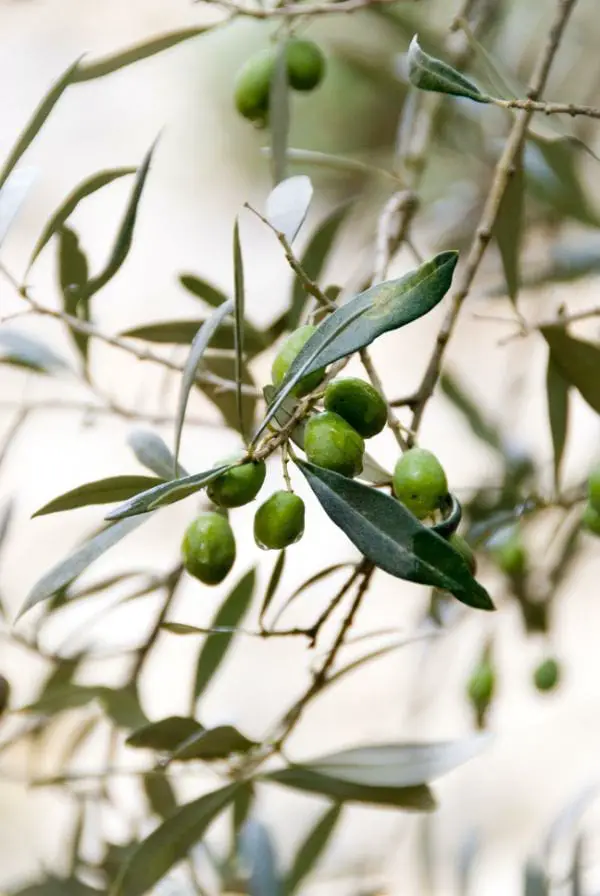Can cats eat olives? Lots of cats adore this product, but is it safe for them to eat olives? We’ll answer all your questions in this short article!
No, seriously, some cats adore olives. We’ll talk about the reasons a little later, but well, cats often eat and do strange and weird things — and it’s not a problem… unless their eating habits and food preferences are harmful. You have to be very careful with the food you give to your cat if you want him to stay healthy. Of course you do!
In this particular article we’ll talk about the olives. We know that the cat owners often ask the questions like “are olives safe for cats?”, and that’s exactly why we’ve decided to write this short article. Your cat deserves to eat only healthy food, agree?
Do Cats Love Olives?
The short answer is: yes, they do. However, they don’t just love olives because they are tasty — according to the cat experts, olives work in a similar way as the catnip (catmint). Why do cats like olives? The reason why it has such an effect is called “methyl cyclopentane monoterpene nepetalactone”. It’s a chemical compound, which has a mind-altering effect. Just like human drugs, basically. No, we don’t wanna say that your cat is a drug addict… but he definitely gets high with olives, as well as with catnip. Is it a problem?
No, it isn’t. However, both black and green olives safety issue is a very deep question, when it comes to cats — and we’ll try to answer all your questions here. Let’s go.
Safety Concerns
In general, healthy cats may eat little amounts of olives without any ill effects, but higher amounts can be dangerous. Before deciding to give your cat olives, familiarize yourself with the hazards.
Olives are typically preserved in a high-sodium liquid, which can result in salt sickness. Since the renal failure, which is lethal for cats, is linked to all of the accompanying symptoms, they are all very serious. A few signs of sodium positioning include decreased appetite, tremors, vomiting, diarrhea, and dehydration.
Similar to adult cats, kittens may experience stomach trouble after eating olives because of the laxative effects of the fruit’s fiber. Young cats may thus be more vulnerable to diarrhea, which causes dehydration.
You should also keep your diabetic cat away from olives because consuming olives might cause insulin sensitivity.
Can Cats Eat Green Olives? Are Olives Safe For Cats?
Green olives are non-toxic and safe for your cat. However, you should give your cat green olives in moderation.
Are Olives Bad for Cats?
We won’t talk about the chemistry of olives in this paragraph. Instead, we’ll talk about some other important things.
The first important thing you have to know is that the olives are definitely not necessary for your cat’s balanced life. Your cat’s body can produce vitamin A and C well without this product. Olives don’t have any nutritional value, so your cat can be healthy even without them.
The second thing you have to know is: yes, the olives can be bad for cats. Once again, we’ll talk about the chemical composition of olives in the next paragraph, not here.
Here we’ll talk about salt. The thing is, the olives are soaked in juice when you buy a jar of olives, and this juice is extremely salty. Of course, cats love salty stuff, but it can be a problem — the salt can lead to the sodium poisoning, and it’s a very serious problem for the cats. If your cat suffers from vomiting, diarrhea, tremor or seizures after eating olives, call your vet right now — this condition can be very dangerous.
If you wanna give some olives as a treat to your cat, try to find the unsalted ones. They are a little more expensive, but it’s definitely worth it when it comes to the health of your cat!
Another problem is that your cat may refuse normal food after eating some olives. It’s not as dangerous as the sodium poisoning, but it still can be a real problem!
Are Olives Poisonous to Cats?
What do olives contain and can they be really dangerous? Here we’ll talk about chemistry.
So, it’s not about salt only. The olives also contain sugar, carbohydrates, phosphorus and fat. In short words, all these compounds are not too bad, but not too good, either. Salt, sugar and fats are definitely not the best choices for you if you want your cat to live a long and healthy life!
However, we can’t say that olives are very poisonous and dangerous if you don’t give them to your cat regularly. Just like the majority of other treats, olives are not very useful, but they certainly won’t cause your cat to be sick.
Can Cats Eat Black Olives as a Treat?
So, we’ve just found the answer to the question “can cats have olives?”. But can cats have black olives?
Ripe olives (they are usually black/purple) have the same chemical composition as the green ones. The same amounts of fat, sugar and salt — so the black olives can be just as dangerous as the green olives. However, they do also contain vitamin C, vitamin A and some antioxidant compounds, which are actually good for your cat’s health — so there are no special problems with black olives. They are as bad and as good as green olives, that’s all you have to know.
If My Cat Ate Olive Pit
Olives are non-toxic to cats and according to the ASPC, olive pits are also non-toxic. If your cat accidentally ate a pit, it is not a health hazard.
Can Cats Eat Olive Oil? Is Olive Oil Safe for Cats?
Ok, we’ve just answered all the questions about the olives. But what about some other products, made of olives? Like, can cats have olive oil?
In short words, olive oil isn’t dangerous for cats. We are sure that the majority of cats aren’t obsessed with olive oil, because, well, it isn’t very tasty. However, you still can give your cat your food, if it was cooked with this oil.
The only thing you have to know here is that you shouldn’t give your pet lots of olive oil. If you give him or her more than one teaspoon per day, your cat will most likely suffer from diarrhea — and we are sure you don’t want it to happen!
Cats And Olive Wood
Some cats may be attracted to the olive wood. It has the same properties as catnip. Sometimes a cat can lick the olive wood, but there is nothing to worry about.
FAQs
How many olives would it take to make a cat sick?
The number of olives needed to make a cat ill varies on a number of variables. Age, weight, and any health issues (such as heart or renal illness) as well as the type of olive given are some of the factors.
What are better alternatives to black & green olives?
Cats love the taste of olives. Due to this, you have a lot of options besides giving your cat genuine green or black olives. Your cat will like snacks that have an olive flavor.
How often should I give my cat olives?
You can only provide a little portion of olives (one olive per snack meal).
Can cats eat Kalamata olives?
The kalamata olive is a large olive that often has a rich purple hue. They are extremely nutritious. Kalamata olives are safe to sometimes offer to cats, but you must be careful with their high salt content.
Can cats eat olive leaves?
Olive branches and leaves are a favorite snack of cats. The fact that they are not poisonous to them is a plus. Olive leaves can keep your cat healthy and ensure that its hair is lustrous and silky. Additionally, they strengthen their immune system.
In Conclusion
Thus, olives aren’t bad for cats, they aren’t poisonous, but they don’t give any benefits either. So, we advise you to find a happy medium or don’t feed your cat with olives at all!
Table of Contents

